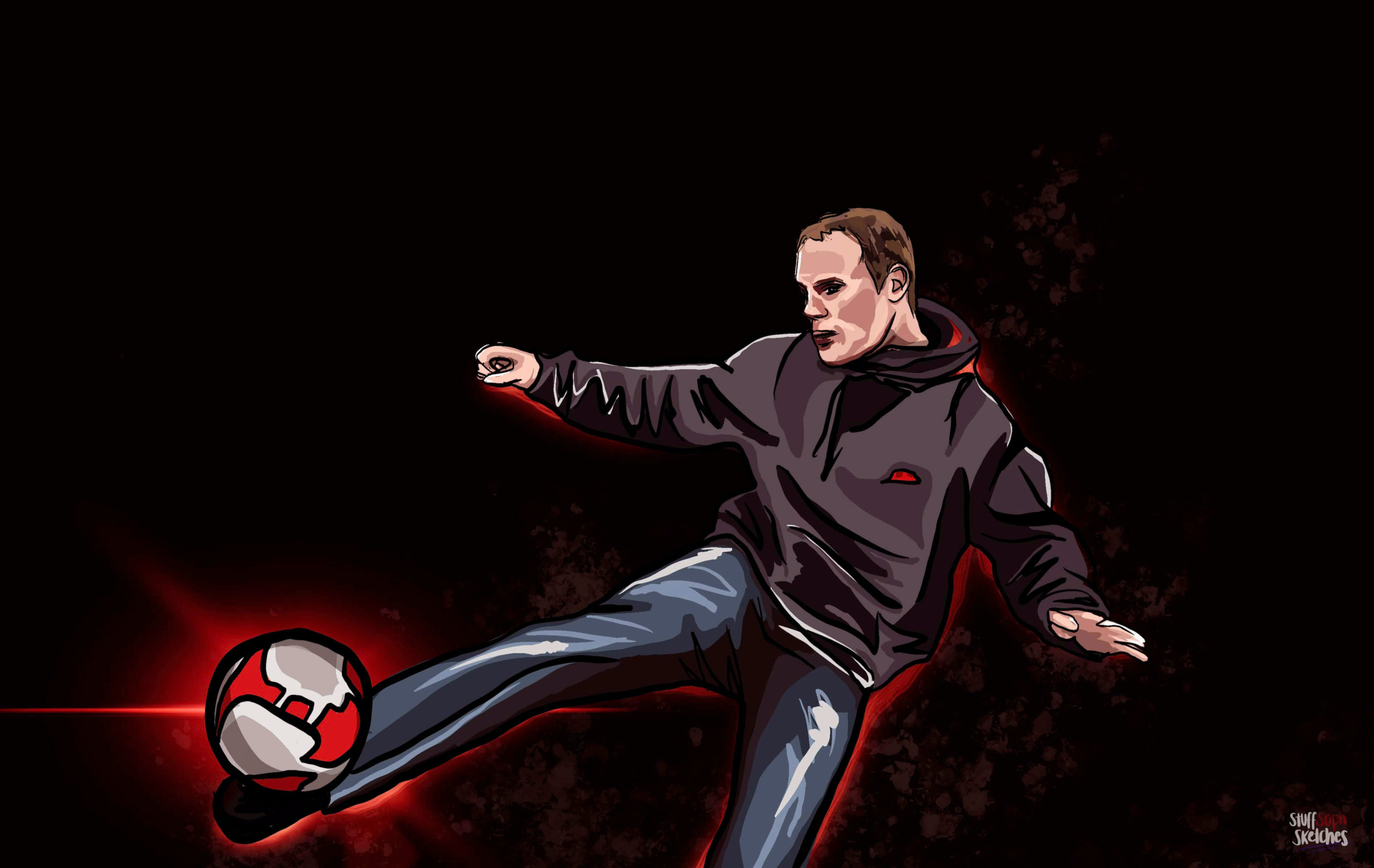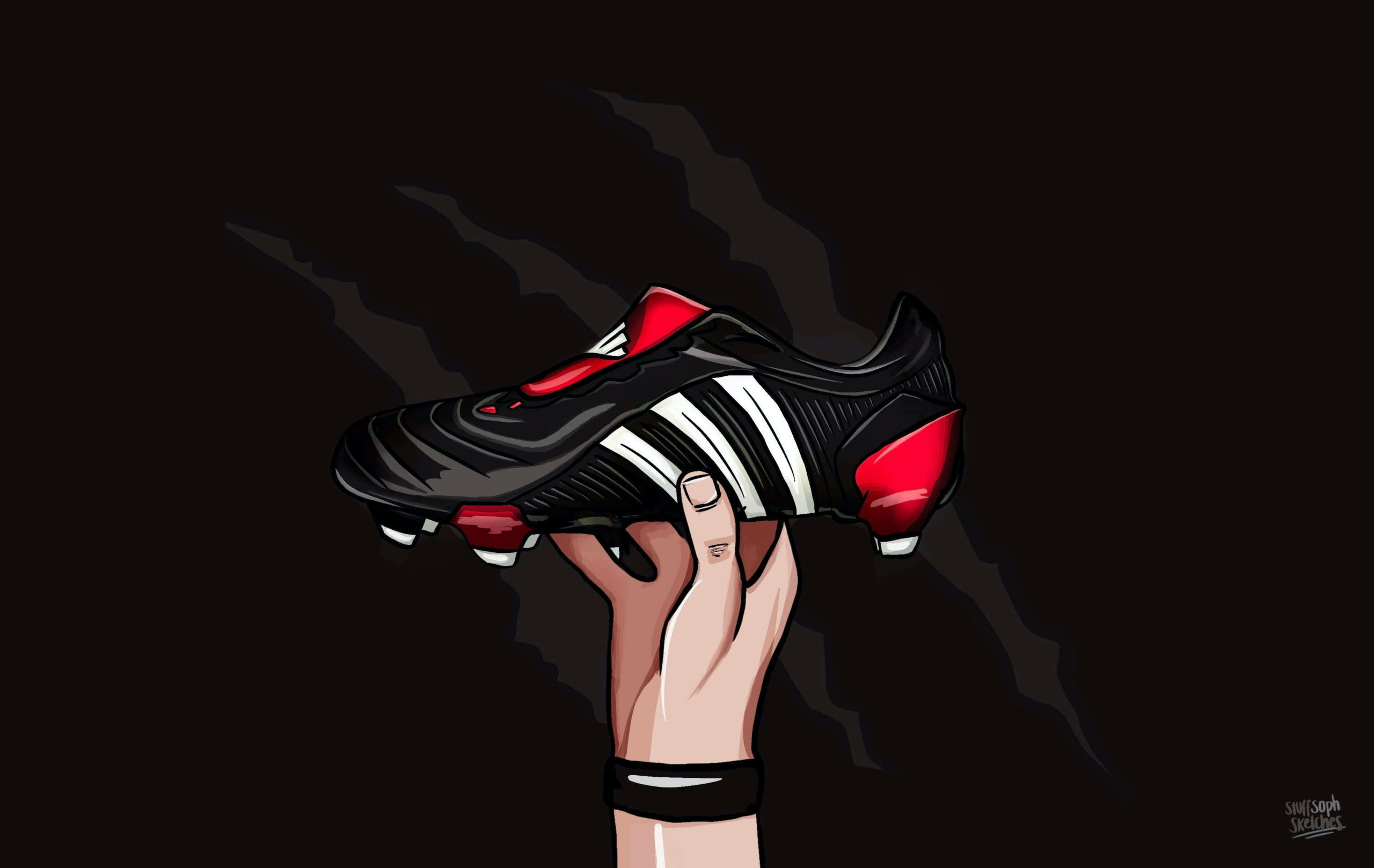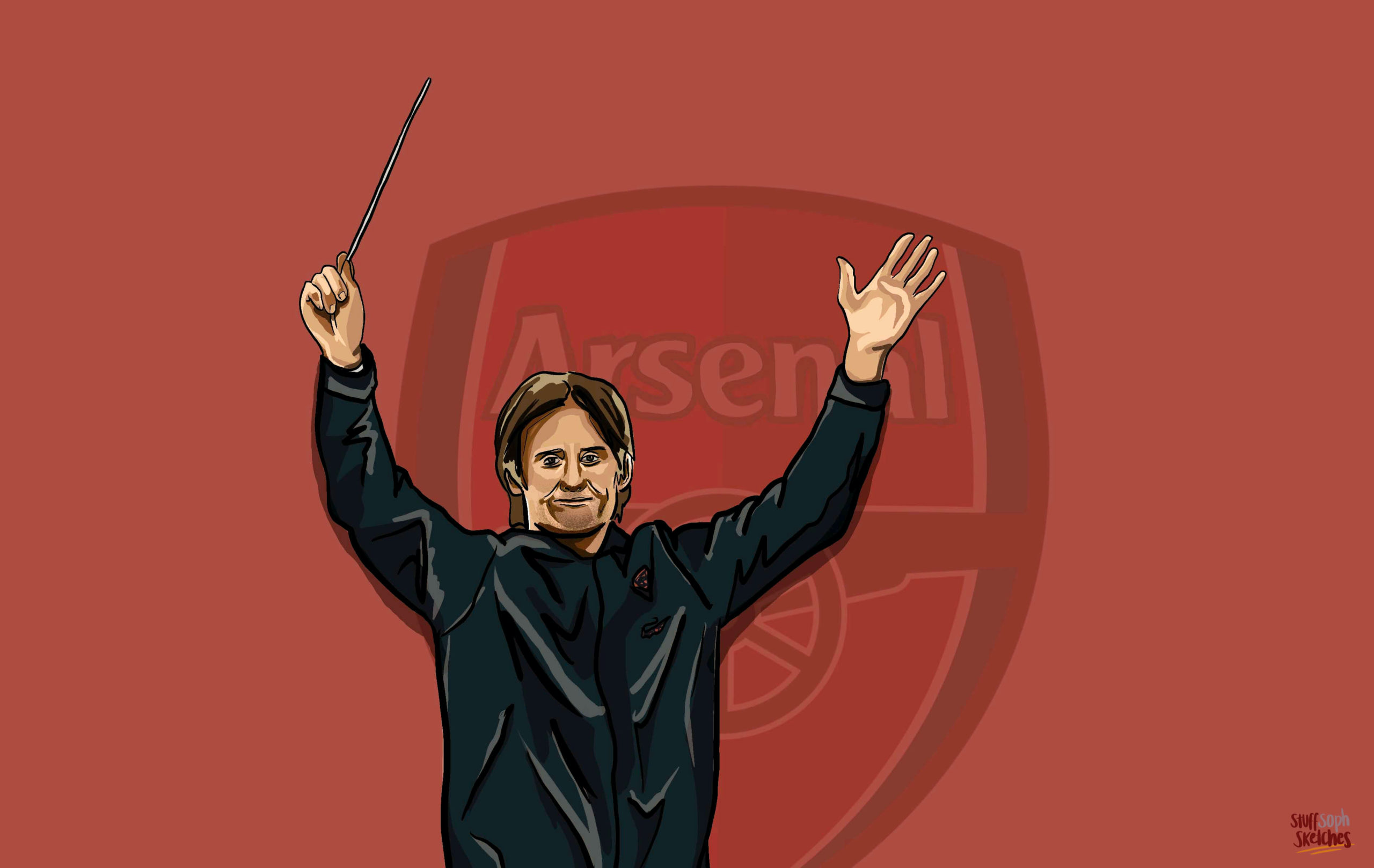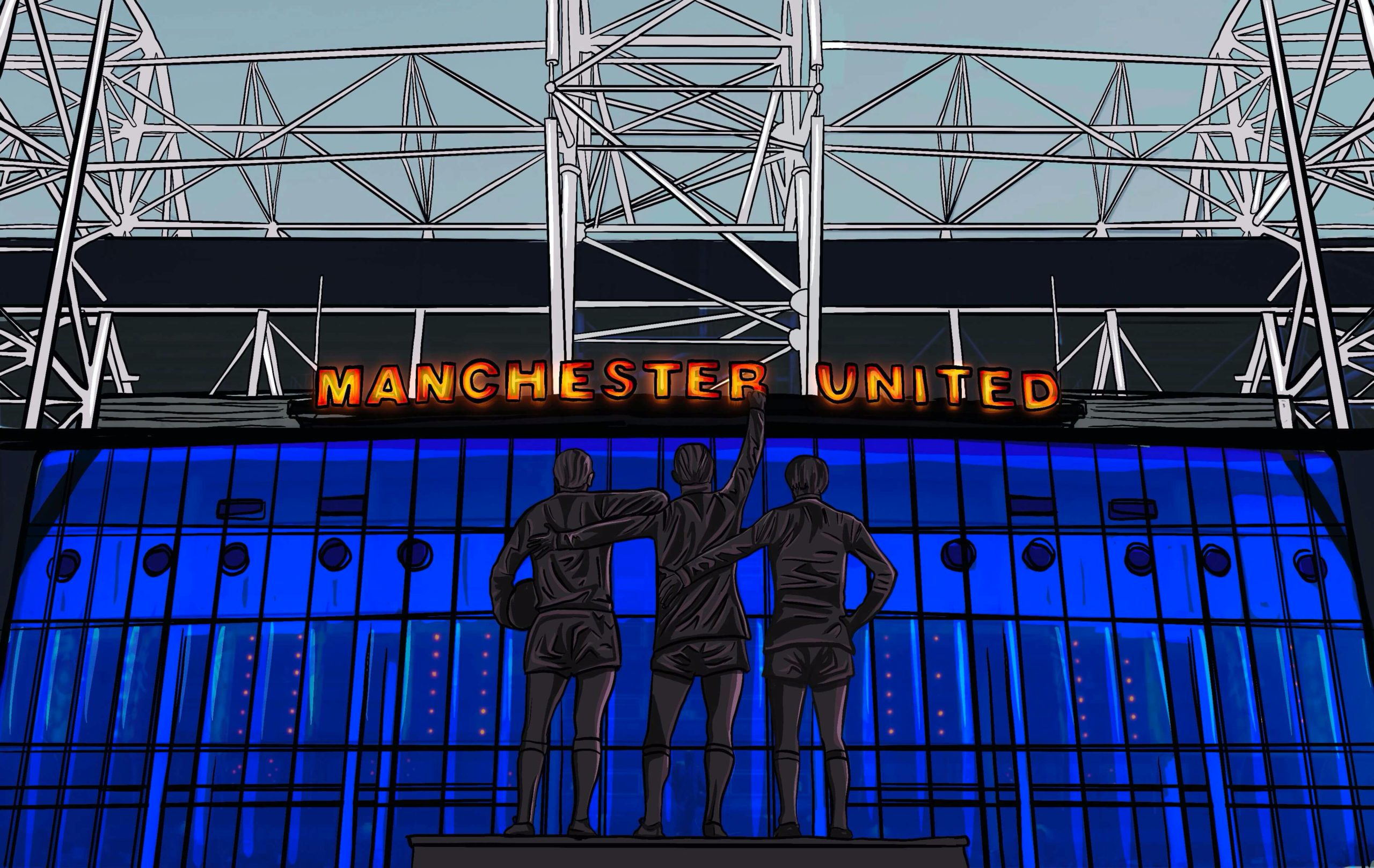The genius of Wayne Rooney’s Street Striker (2008) was the brilliant paradox of how profoundly “unstreet” it was.
I wonder, what was the pitch meeting for this show like?
“Derek – I have a great idea for a televised football competition. Think Wayne Rooney, think bootcut jeans and Total 90s, think a former middling professional footballer come self-styled football choreographer in a River Island cardigan – Derek, you still with me? –Right, so think kicking footballs into wheelbarrows and empty oil barrels…you know, real street…real London.”
“So, what do they win? A professional contract with Man United?”
“No, Derek – a trip to Wales and a chance to do keepie-uppies on the pitch at half-time during a Swansea match. Brilliant.”
It came during the era of peak Sky One football reality shows. We’d grown up on the fantasy of Dream Team; Harchester United FC making it to the heady heights of the Champions League only to be relegated to the Championship for financial irregularities. But by the mid-noughties, we were ready for grittier stuff. Remember Football Icon and Football’s Next Star? Boys from around the UK battling it out for a Chelsea or Inter Milan contract (strangely, Mourinho was the manager at both clubs – the man just loves drama). It was the absolute normality of these kids that was so compelling; you felt like you knew them and then you see them making awkward small talk with Marco Materazzi or nutmegging Patrick Viera in a training match. So, two total unknowns signing professional contracts with massive clubs – what was next for Sky One? Chipping footballs from a moving barge into a stationary narrow boat, obviously.
The harder you pinged the ball at the kid with long hair trying to do a kick-flip on the halfpipe, the bigger the thumbs-up from Wazza.
But we bought into it anyway. Rooney, supremely awkward and brilliantly untrained as a television personality, telling fifteen-year olds from East London that they had done really well dribbling through the moving tyres, but they let themselves down when it came to launching the ball forty yards into a skip. My favourite challenge consisted of the contestants kicking footballs at “skater boys” in a skate-park (a nod to British social rivalries of the period) – the harder you pinged the ball at the kid with long hair trying to do a kick-flip on the halfpipe, the bigger the thumbs-up from Wazza.
One of the lasting legacies of the show was that Season Two was championed by a woman, one of seven girls who entered the show that year and in fact the only contestant who went on to have a professional football career. Ashleigh Goddard, then a seventeen-year old from Edgware, experienced spells in the Arsenal academy before applying for show and winning it in 2009. Some ten years ago, the acknowledgement of the women’s game was nowhere near as prominent as it is today (albeit, still a fair few leagues apart). Looking back though, Street Striker was somewhat ahead of its time. Each week, Goddard was able to showcase her talent in front of a viewership of approximately 600,000 people. Aside from Rooney’s prize of two measly tickets to the World Cup in 2010, Goddard was scouted and offered a scholarship in the US after winning the show. She returned to England to represent Reading FC and later the London Bees. With a palpable lack of investment and interest in the women’s game, Goddard would train to become a PE teacher instead, forcing football to the fringes of her life. Unhappy, Goddard would not rest until she was playing football full-time. This decision took her overseas again, this time to Denmark and Cyprus before settling at Crystal Palace in 2019. Perhaps we have Sky One, Wayne Rooney, Coke Zero, or Andy Ansah’s ‘unbelievable tekkers’ to thank for that…
It would be hard to argue that any of the challenges in this ridiculous programme genuinely achieved the show’s mission: ‘to find the most skillful street footballer in the United Kingdom’. The winner of Season One, Travis Beckford, had unsuccessful trials at Leeds and only found his true calling when he became the star DJ on National Prison Radio whilst serving a three-year sentence. That said, seeing him dribble the ball around five defenders in a multi-storey car park in a dramatic finale was some of the finest prime-time football drama Sky One ever produced.



